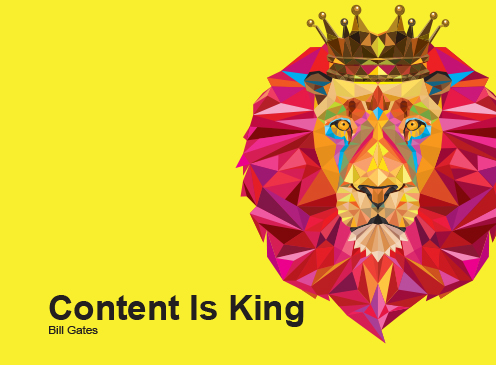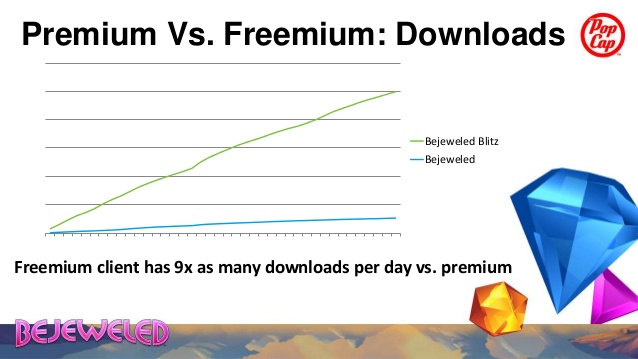Buzzword battlefield is rough as some emerge and quickly become dominant while some faded away quietly like an old star out of digital marketing universal.
Many buzzwords are valuable and cool to use however they are usually overused or misused. Let’s hunt down widespread marketing buzzwords ruling the marketing world now.
1. Content is King

This phrase word has been mentioned and used so much in the last couple years and it seems to be overused and annoying now. Content is King emphasized the importance of content quality to your marketing success.
Relating to this buzzword is the techniques to improve your content to attract and engage a targeted group of customers. Another old-school phrase accompanies excessively with “content is king” is quality is more important than quantity which we mostly learned ages ago.
2. Disruptor
To Dota2 community, no I am not talking about the hero you are thinking of. Disruptor here means an innovation that replaces an existing market, technique or procedure and becomes the stardom in that section. Interestingly disruptor is destructive and creative factor at once.
One successful example is Facebook who beat Yahoo! 360 and MySpace to generate a new era of social networking sites. A recent disruptor that we could not say no to is Uber that changes our experience of commuting by taxi drastically.
3. Freemium
 Freemium is not only a buzzword but also a marketing strategy that is applied commonly by many businesses especially online and e-commerce ones for instance live chat software, social media tools and mobile games.
Freemium is not only a buzzword but also a marketing strategy that is applied commonly by many businesses especially online and e-commerce ones for instance live chat software, social media tools and mobile games.
Users are offered to use a free version of one application with basic features and only required to pay a fee (usually monthly) to upgrade it to premium version for more advanced features and functions. Several useful freemium products that you can try yourself are Subiz, Pixlr and Hootsuite, which are ideal marketing solutions for small e-commerce businesses.
Some claim that freemium is not free. I agree but I would also say that nothing is really free and we can make the best out of what we have. So why not give them a try?
4. Localization
After entering global market, many businesses start adding the buzzword localization into their to-do marketing list. Based on GPS data collected from user’s device, marketers want to design a localized approach or response with suitable language, culture and geography to their customer’s need.
Google does a great job of applying this tactic when translating the phrase “I’m feeling lucky” into many languages in different countries to adapt local cultures.
The meaning of lucky is widely accepted in many places but unfortunately it violates religious beliefs in some countries for example Afghanistan. Then Google changed this phrase into the copy of “I trust into God” in Pashto – Afghan national language. Everything went well.
5. Millennials
 With approximately 12,800,000 search results from Google at the time of writing this article, this is no doubt one of the dominant buzzwords. Be prepared to hear or see this word over conferences, speeches and debate broadcasts. Millennials, also called generation Y, refers to people born between 1980s and early 2000s.
With approximately 12,800,000 search results from Google at the time of writing this article, this is no doubt one of the dominant buzzwords. Be prepared to hear or see this word over conferences, speeches and debate broadcasts. Millennials, also called generation Y, refers to people born between 1980s and early 2000s.
They are considered to be digital natives due to heavy engagements with online communication, social media and high-end technology. Generation Y often receives low respect from employers because of presumed negative traits like entitled and disloyal.
However, they will turn to be the biggest workforce very soon and their digital addiction will eventually shape how they shop and do things online.
6. Growth Hacking
 Grow hacking is usually used for aspiring start-up and new businesses who have small budget but big desire.
Grow hacking is usually used for aspiring start-up and new businesses who have small budget but big desire.
They advantage multiple efficient but affordable tactics like content marketing, viral marketing, email marketing, SEO and social media to draw attention and drive traffic from customers. For every decision a business makes, “how does it impact the growth?” is the first and foremost question to answer.
Dropbox is an easy example of growth hacking with its successful referral program. When it just started doing business, instead of going for paid ads which could cost a good amount of money and time, Dropbox chose a low cost but high impact way to hack its growth.
The new business designed a referral program that awarded free 500 MB storage space for each new sign-up that an existing user referred to Dropbox. After 15 months of launching, Dropbox increased its total users from 100,000 to 4 million.
7. Big Data
 Big data refers to a huge volume of available data including structured and unstructured that is too big to process by normal and traditional means. As digital world has been grown, data can be collected from various sources such as mobile data, email and chat history and web browsing activity.
Big data refers to a huge volume of available data including structured and unstructured that is too big to process by normal and traditional means. As digital world has been grown, data can be collected from various sources such as mobile data, email and chat history and web browsing activity.
That is why people keep telling you to expand your budget to implement more technology and online advertising.The more data you have, the more accurate your analysis is.
8. Internet of Things (aka IoT)
If you are a high-tech savvy, this buzzword must cross your mind countless times. Folks discuss non-stop about an Internet of Things world where our casual belongings like fridge, watch, door, car and etc. are connected and automatically share their seamless data within the network without our interaction.
That day is coming since Samsung announced that 90% of their products will be plugged into IoT system in 2017 and 100% in 2020. This will make a great impact on digital marketing and change the game completely. Think deeper about how to make your marketing strategy work effectively with IoT now because soon we will work smarter in the connected life.
Here are just some of most popular used buzzwords in the marketing. Do you have any that is not in this list? Please share with us in the comment. Can’t wait to get yours!
Also, feel free to share or tweet.




